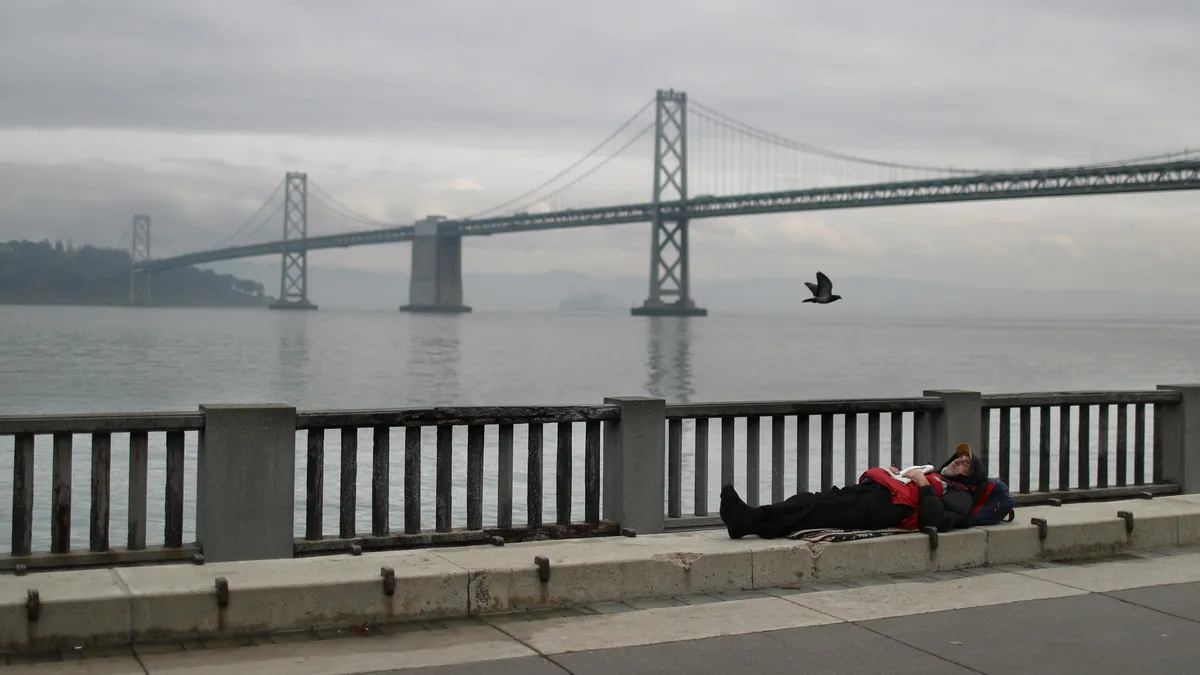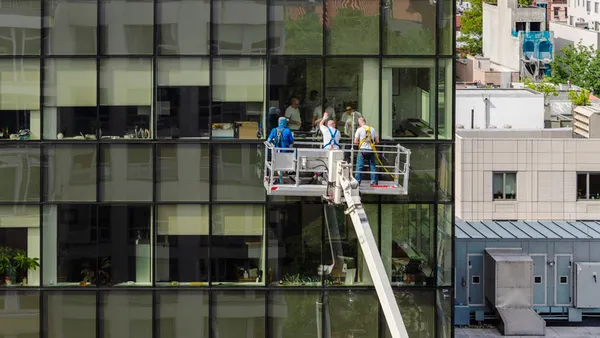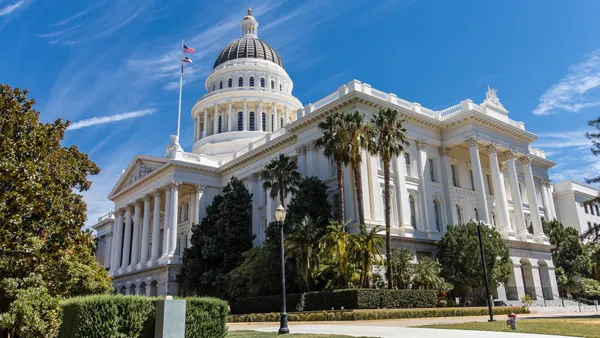Dive Brief:
- In San Francisco, a “street crisis team” of trained practitioners will now respond to non-emergency calls involving people experiencing homelessness through a yearlong, $3 million pilot program announced by Mayor London Breed last week.
- Law enforcement has historically responded to these calls, and the new Homeless Engagement Assistance Response Team is part of a larger city effort to reduce the need for police to be the primary response for people experiencing a crisis on the street, according to last week’s news release.
- Decreasing the use of police can reduce cycles of incarceration, which are expensive for cities and harm people experiencing homelessness, said Charley Willison, an assistant professor of public and ecosystem health at Cornell University who co-authored a new policy brief on the role of police in cities’ responses to homelessness.
Dive Insight:
As cities nationwide face a homelessness crisis, they may be pressured by resident and business complaints to focus on policing-centric policies such as encampment clearance and fines, according to the policy brief Willison co-authored.
San Francisco, however, is “a national leader in developing and implementing alternatives to law enforcement, and it is essential that we invest in compassionate responses to people experiencing street homelessness,” said Mary Ellen Carroll, executive director of the San Francisco Department of Emergency Management, in a statement. The department will oversee the new street crisis response team alongside the nonprofit Urban Alchemy.
The team will initially comprise four sub-teams, each with a supervisor and four practitioners trained in skills including trauma-informed care, de-escalation, linking people with services, CPR and first aid, and cultural and gender awareness. A vast majority of the practitioners will come from existing Urban Alchemy teams, a spokesperson for the Office of the Mayor wrote in an email.
The teams will operate between 7 a.m. and 7 p.m. on weekdays and 7 a.m. and 3:30 p.m. on weekends, the news release says. Each team will be required to respond to at least 100 tickets weekly, although program leaders may adjust these expectations following a review of call needs and outcomes within the first 30 days of the program’s launch.
The team will engage with people experiencing homelessness, assess and help with their immediate needs, document longer-term service needs and coordinate with San Francisco’s other specialized street response teams and other city services, the news release says.
Monthly data reports regarding the program’s progress will include information about the number and types of calls and their outcomes, the news release says. The reports will allow the city to identify opportunities for improvement.
Willison, the Cornell University assistant professor, anticipates a growing movement by cities to establish teams such as San Francisco’s. She said she hopes San Francisco expands the team's scope after the program ends to further reduce the risk of punitive police interactions.











